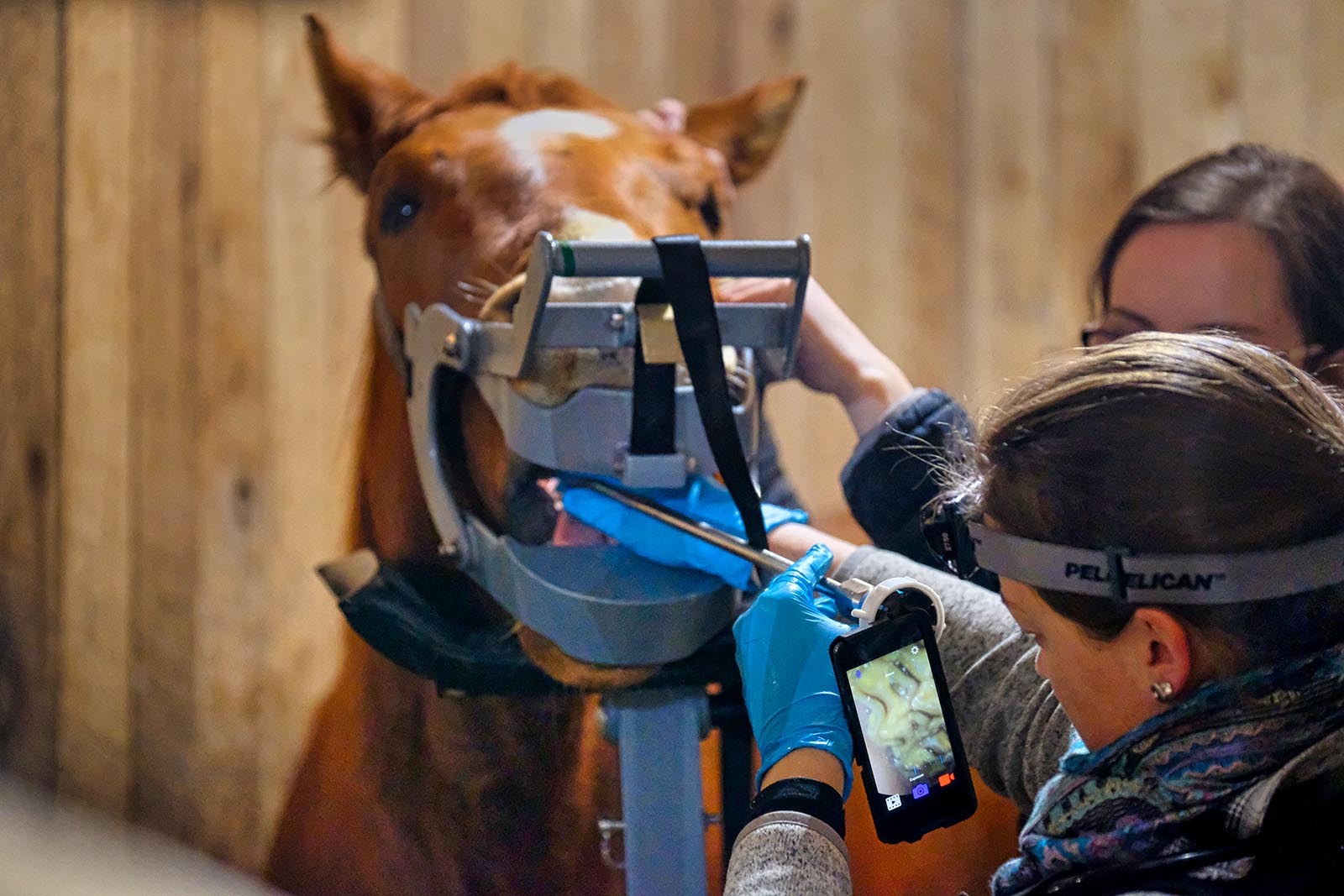Signs of dental pain include:
- Dropping feed
- Difficulty with weight gain
- Resistance with the bridle
- Tilting the head to one side while eating
- Dropping poorly chewed hay (‘quidding’)
- Odor coming from the mouth
- Pocketing of feed within the cheeks
What does dental care comprise of?
- A thorough dental examination includes sedation and the use of a speculum to open the mouth. Once the speculum is in place, each tooth can be evaluated for problems such as looseness, cavities, fractures, overgrowths, or excessive wear. Some of these problems can be corrected, others are monitored for changes yearly. Radiographs can be taken if needed to evaluate the roots of any suspect teeth.
- After the initial examination, dental equilibration is performed using power and hand floats to best remove excess tooth growths without damaging the roots or soft tissues.
- Once the speculum is removed, the jaw is evaluated for a normal range of motion, and the temporomandibular joint (TMJ) chiropractically adjusted as needed. Horses can develop asymmetry of the TMJ due to uneven dental wear.





